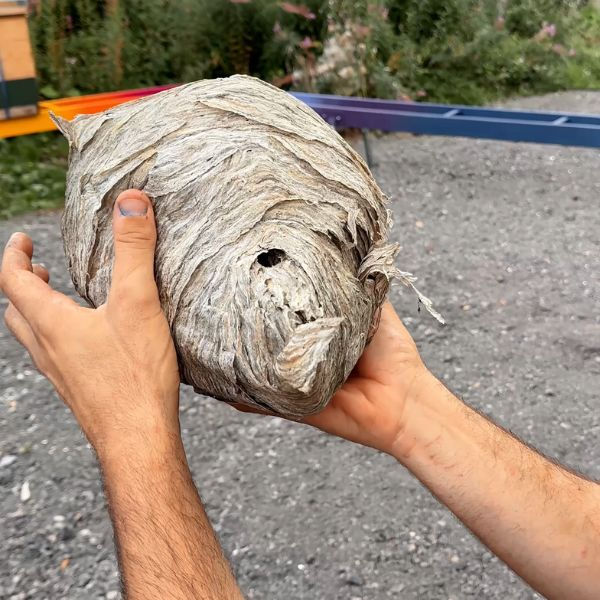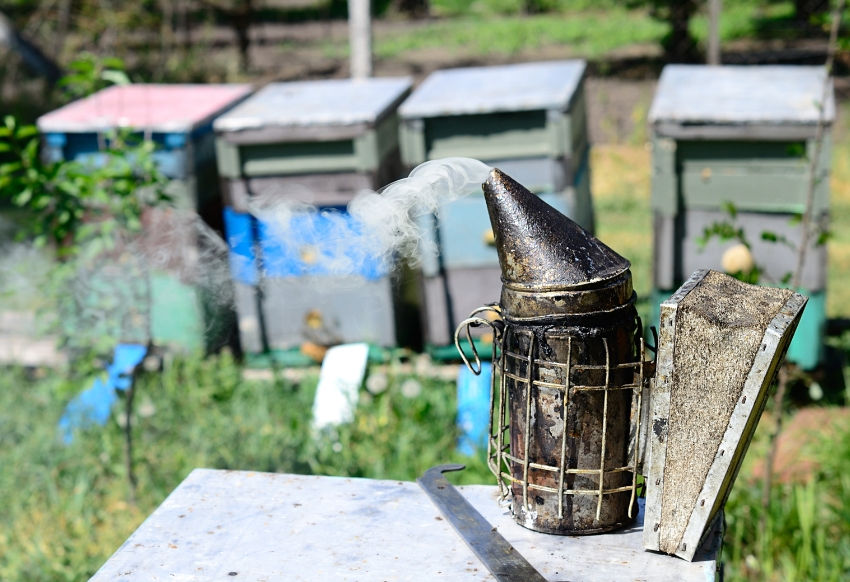5 Ways Queens Fail During Introduction
- Laurence Edwards

- Jan 13, 2025
- 5 min read
Updated: Jun 7, 2025
5 Crucial Reasons Queen Introductions Fail (And How to Avoid Them)
As a passionate beekeeper, I understand the importance of successfully introducing new queens to your colonies. A failed introduction can be incredibly frustrating and significantly setback your hive. That’s why I’m sharing the top five reasons queen introductions fail, along with tips to ensure a smooth and successful process every time.
At Black Mountain Honey, we have sold thousands of queens. Through this experience, we have learned what works and what doesn't in terms of queen introductions. I’m excited to share this invaluable knowledge with you today so you can avoid common pitfalls and help your new queens become accepted and thrive.
1. Introducing a New Queen to a Colony That Already Has One
One of the most common reasons for queen introduction failure is assuming a colony is queenless. Many beekeepers rush to introduce a new queen when in reality, a queen may still be present. In some cases, the originating queen may have swarmed but left behind virgin queens to take her place.
Here’s how this typically unfolds: A beekeeper notices a lack of eggs and brood in their hive and assumes it's queenless. They hastily introduce a new mated queen, only to find that a virgin queen is present. The resident virgin is likely to kill the new queen, resulting in a complete failure.
To avoid this scenario, conduct a quick test to confirm if the colony is truly queenless. The best method is to add a frame of eggs from another hive. If the bees start drawing emergency queen cells, they are indeed queenless and ready for the new queen. If they ignore the eggs, it means they already have a queen present, even if you can't spot her.
Only after confirming that the colony is queenless should you introduce your new queen. Moreover, wait a full eight days after removing the old queen before adding the new one. This allows the bees to become "hopelessly queenless," making them more willing to accept the newcomer.

2. Introducing a Queen to a Queenless (But Not Hopelessly Queenless) Colony
Another common pitfall occurs when beekeepers create a queenless colony, but introduce a new queen too soon. This is especially frequent when splitting colonies or making nucs. The queenless colony still retains the ability to rear their own queen from existing eggs and larvae.
As a result, when you introduce a mated queen, the bees might ignore her to raise their own queen. This can lead to the new queen’s death. I estimate this method has around a 50/50 success rate at best. This is far too low.
For reliable results, always wait the full eight days after making a split before introducing a new queen. This gives the bees enough time to transition to a hopelessly queenless state, minimizing the risk of them raising their own queen.

3. Introducing a Queen of Different Genetics
This issue can often confuse beekeepers when they attempt to introduce a queen with a different genetic background into an established colony. For example, if you try to introduce a lighter-colored Buckfast queen into a colony of darker, local "mongrel" bees, it can cause complications.
Initially, the bees may appear to accept the new queen and allow her to start laying. However, as time passes, they may revert to raising a new queen that aligns with their own genetics. This occurs not out of malice, but as an instinct to preserve their genetic lineage.
To counteract this issue, keep a close watch on the colony after introducing the new queen. If you notice early signs of emergency queen cells or supersedure, act quickly. Examine the hive every three days and eliminate any queen cells you find. This proactive approach gives the new queen a higher chance of acceptance.

4. Delaying Queen Introduction After Arrival
It's easy to fall into the trap of delaying queen introductions after they arrive, but this is a common mistake that can lead to failure. Beekeepers often receive queens in the mail and decide to hold on to them for a couple of days, thinking it’s better for the queen.
However, the queen attendants in the shipping cage can only provide care for so long. After a day or two, the new queen starts to decline in condition due to lack of constant care and nutrients.
My advice is clear: as soon as your queens arrive, introduce them to the hive right away. The sooner you get them integrated, the better their chances of surviving and being accepted by the colony.
If you must hold queens for a short period, place them in a cool, dark location. Provide a drop of water every few hours, but ideally, get them into the hive within a couple of hours of receiving them.

5. Disturbing the Colony During Queen Introduction
Another significant pitfall that can derail a queen introduction is unnecessary disturbance. Beekeepers often feel compelled to frequently check on the new queen, lifting frames and fussing with the hive. However, this excitement can be detrimental.
The bees need time and space to accept the new queen at their own pace. Excessive disturbance can lead to the bees balling the queen, which means suffocating her.
My strong recommendation is to implement a strict hands-off policy during queen introductions. After placing the queen cage in the hive, resist the urge to check for a full 24 hours. This allows the bees ample time to acclimate to her pheromones. Don't return for a full week afterward. This hands-off approach significantly improves the chances of a successful introduction.

Putting it All Together: My Foolproof Queen Introduction Method
Here’s a concise step-by-step process to ensure a successful queen introduction:
Remove the Existing Queen: Take out the current queen from the hive.
Confirm Queenlessness: Add a frame of eggs from another hive. Watch for emergency queen cells. If they form, the bees are ready to accept a new queen; if not, they have a queen present.
Wait Eight Days: Allow the bees sufficient time to become hopelessly queenless.
Destroy Existing Queen Cells: Gently shake bees off each frame and remove any queen cells.
Introduce the New Queen Within 24 Hours: Place the queen's cage in the hive but do not release her. Leave the hive undisturbed for 24 hours.
Release the Queen After 24 Hours: Return the next day to release her from the cage.
Do Not Disturb the Hive for 7 Days: Give the bees time to accept their new queen without interruption.
Check for New Queen and Eggs After 7 Days: After a week, check if the new queen is present and laying eggs.
For further detailed guidance on requeening your beehive, please visit Black Mountain Honey’s Guide.

Following this method is the best way I know to guarantee a successful queen introduction every single time. It may require patience, but the rewards include strong, thriving colonies led by robust queens.
Queen introductions can be complex, but with the right knowledge and approach, you can ensure a smooth, successful process every time. By steering clear of the pitfalls outlined here and adhering to my step-by-step method, you will be well on your way to establishing healthy colonies with thriving new queens.
Happy beekeeping! Don’t forget to join our channel for more tips, tricks, and in-depth beekeeping content!














MERCONTOTO
MERCONTOTO
MERCONTOTO
hassle.
mevius88 mantap168 kinitoto dvtoto gorila39 betogel inatogel wdbos viral4d apace138 apace138 inatogel gorila39 gorila39 betogel budaya4d budaya4d inatogel inatogel inatogel inatogel jiwaspin kedai69 kedai69 jiwaspin kinitoto kinitoto kokitoto kokitoto konco88 konco88 liga788 liga788 royaltoto mevius88 mevius88 maxwin89 maxwin89 maxwin89 maxwin89 pelangi189 pelangi189 tip4d tip4d theoutlook.asia wingede wingede mahkota555 mantap168 mio777 moli77 betogel betogel betogel betogel bintang4dp bintang4dp bintang4dp bintang4dp bintang4dp bintang4dp dprtoto idoslot pelangi189 asustogel bandungtoto betcash303 boyabet88 budaya4d bulan33 bulantogel buntogel davo88 dorahoki inatogel inatogel inatogel jayatogel jayatogel jayatogel jayatogel jayatogel jayatogel jayatogel jualtoto kartutoto kdslots777 kingdomtoto kingdomtoto kingdomtoto lapakhoki88 limatogel lobster4d ltdtoto mastertogel mawartoto mawartoto megaslot288 merdeka138 mono77 mpo88asia nadimtogel napi4d oppatoto pos4d pos4d qq88asia juragan69 rajatogel rajatogel rajatogel ratutogel ratutogel roda4d royaltogel royaltotopedia royaltoto royaltoto shiokambing sohotogel sultantoto sultantoto togelcc togelcc togelcc togelup togelup totobet totobet totojitu totojitu turbobet77 vava4d win4d winlive4d vegas969 tip4d dorahoki nanastoto ziatogel lunatogel ak4d ak4d ak4d ak4d inatogel toto88 dingdongtogel dolantogel dorahoki jeboltogel nadimtogel nanastoto protogel togelup toto12
aaaaaaaaaaaa